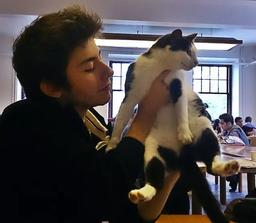We have already learned to put case suffixes after nouns. In this lesson you will learn to use case suffixes behind verbs.
| I love learning Turkish. | Türkçe öğrenmeyi seviyorum. |
| I am afraid of flying. | Uçmaktan korkuyorum. |
| I am trying to learn Turkish. | Türkçe öğrenmeye çalışıyorum. |
| She insisted on leaving. | Ayrılmakta ısrar etti. |
| I want to try something new. | Yeni bir şey denemek istiyorum. |
| I want to swim tomorrow. | Yüzmeyi yarın istiyorum. |
As you can see above, the ablative and locative suffixes come after the full infinitive, whereas the accusative and dative suffixes come after the light infinitive, that is, the infinitive without the final k. Yes, there are some verbs in Turkish, such as ısrar etmek, which take objects with a locative case suffix.
The English verb to try is often translated with çalışmak if trying means that you are making effort. If trying doesn't mean making effort, the verb denemek is used instead.
The only verb that can take another verb as an object in its nominative form - that is, without suffixes - is istemek. You can see this in the sentence Yeni bir şey denemek istiyorum. However, if a word comes between istemek and its verbal object, then we do need to use the accusative suffix. You can see this in the sentence Yüzmeyi yarın istiyorum, in which yarın is in an uncommon place. In this sentence, it was already clear that I wanted to swim, and I am focusing on the word yarın to emphasize that it is tomorrow that I want to swim. Words get more emphasis when we put them later in the sentence, closer to the final verb.

